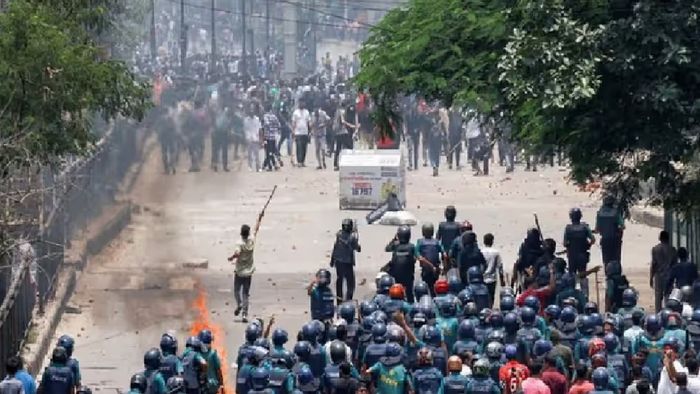Bangladesh Army arrests hundreds of Awami League workers ahead of planned protest
Hundreds of Awami League supporters have been arrested by the Bangladesh Army ahead of a planned protest in Dhaka. The interim government, led by Muhammad Yunus, has denied permission for the protest, citing threats to law and order.

- Nov 10, 2024,
- Updated Nov 10, 2024, 1:52 PM IST
Hundreds of workers and supporters of former Prime Minister Sheikh Hasina's party, the Awami League, were arrested by the Bangladesh Army.
The arrests come in response to a planned protest scheduled in Dhaka on November 10, against the interim government led by Muhammad Yunus, following which 191 platoons of the Border Guard Bangladesh (BGB) have also been deployed across the city and other areas ahead of the protest.
Meanwhile, authorities denied permission for the Awami League to hold the demonstration.
Workers, supporters, and underground leaders of the party are expected to gather in Dhaka’s Gulisthan, Zero Point, and Nur Hossain Square areas, protesting against the alleged false framing of their leaders, the banning of the student wing Chatra League, and the persecution of Awami League workers.
Bangladesh saw a massive crackdown on Sheikh Hasina's party after she was forced to resign and flee the country on August 5 following violent protests backed by Khaleda Zia's Bangladesh Nationalist Party (BNP), Jamaat-e-Islami, and other groups.
The BNP and Jamaat have announced that they will not allow any gatherings or protests by the Awami League. Areas like Gulistan, the Awami League headquarters, and other potential protest venues have been occupied by Jamaat-e-Islami and BNP workers to prevent Awami League supporters from assembling.
Rejecting permission for the protest, the Muhammad Yunus administration referred to the Awami League as a "fascist party" and vowed to not tolerate any "attempts to incite violence".
“The Awami League in its current form is a fascist party. There is no way this fascist party will be allowed to hold protests in Bangladesh. The interim government will not tolerate any violence or any attempt to break the law-and-order situation in the country,” Shafiqul Alam, Yunus's press secretary, said in a statement on Saturday.
Alam further said that people who would try to hold rallies, gatherings or processions will "face full force of the law-enforcing agencies".
Meanwhile, the Awami league said that their protest is to secure the rights of people in Bangalesh and the rise of fundamentalist forces.